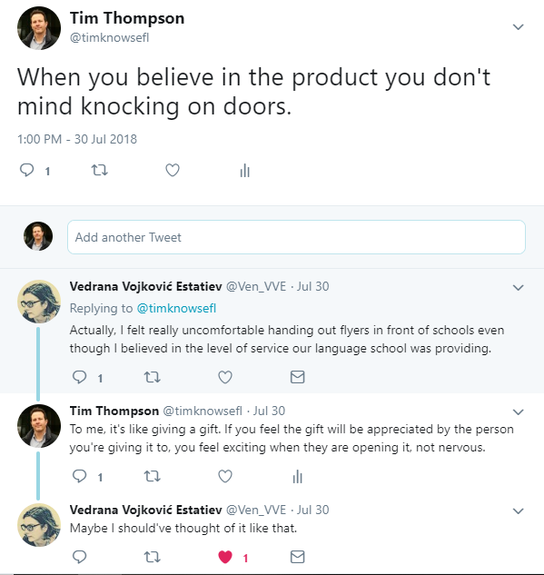One of the biggest problems that public speakers have is that nobody has told them what they are doing wrong. By "wrong" I mean distracting, something that prevents the audience from focusing on what the speaker is saying. Some examples of this include swaying from side to side, looking at the ceiling or floor, turning and talking to the screen for most of the presentation, nervously scratching or rubbing one's hair or face, or unconsciously playing with an object like clicking a pen, jingling the keys in one's pockets, etc. The first step to helping them improve is making them aware of what they are doing. This can be done by a very blunt audience member (hopefully someone they know), a presentation skills instructor during a course, or by watching a video of themselves present. All three situations can lead to feelings of embarrassment at the time, but they can also lead to huge improvements in public speaking.
Really good presenters know themselves. They know their bad habits, catch themselves doing those things quickly, and stop. They are aware of their posture and straighten up when they feel themselves slouching. They are constantly thinking about where they are standing in relation to the audience, the projector screen, the lectern, the microphone, etc. Good presenters know they can't continue speaking into a fixed-position microphone if they need to turn around and check something on the screen behind them, or they figure out that they can speak into the side of the microphone while glancing over their shoulder. They know what do with their hands (or more importantly, what NOT to do with their hands). They know the value of eye contact with the audience and make an effort to acknowledge different areas of the room even if it isn't comfortable for them.
How you deliver your message is often more memorable than what you are actually saying. Think back to the last conference you attended and the talks you sat through. There is a good chance that your impression of the various speakers is based more on how you perceived their delivery than on what they actually said. The people we consider to be "good speakers" are usually the ones that are more aware of how they appear to us and make sure that poor body language doesn't interfere with the message they want to communicate.


 RSS Feed
RSS Feed